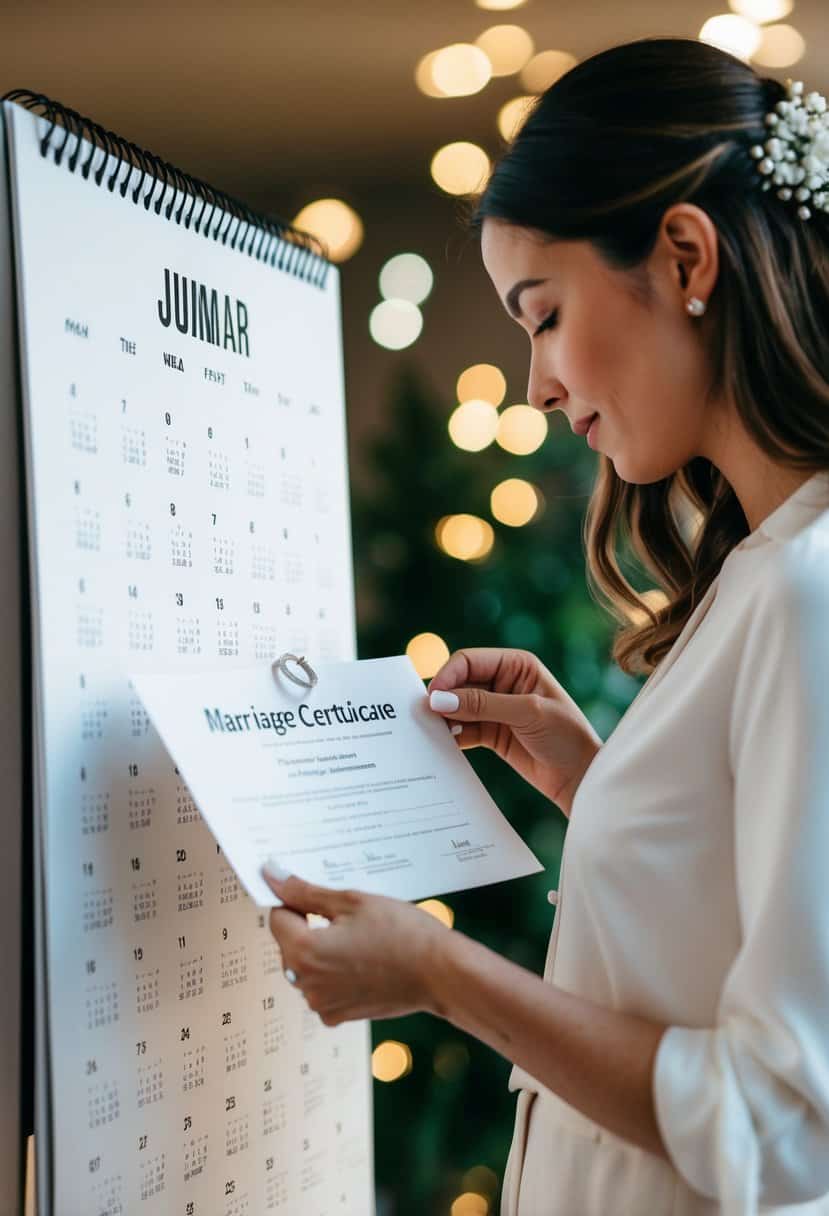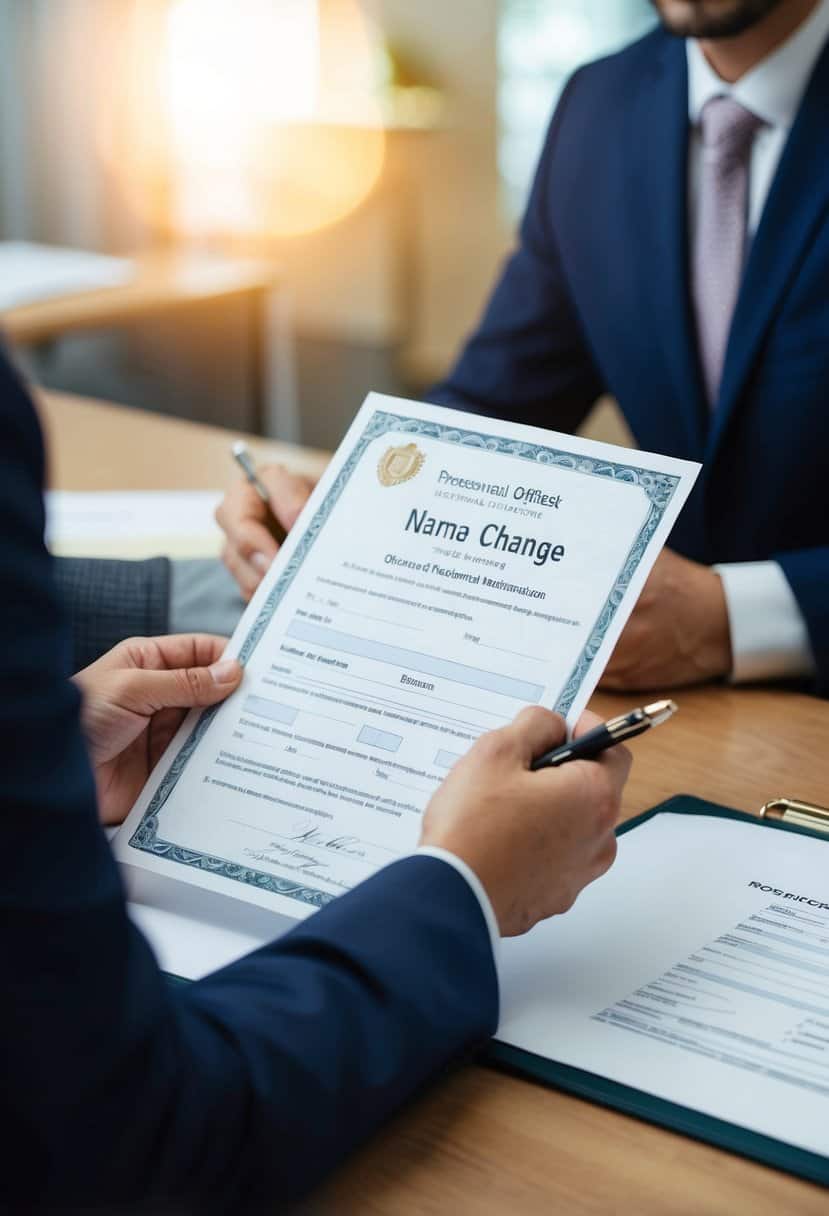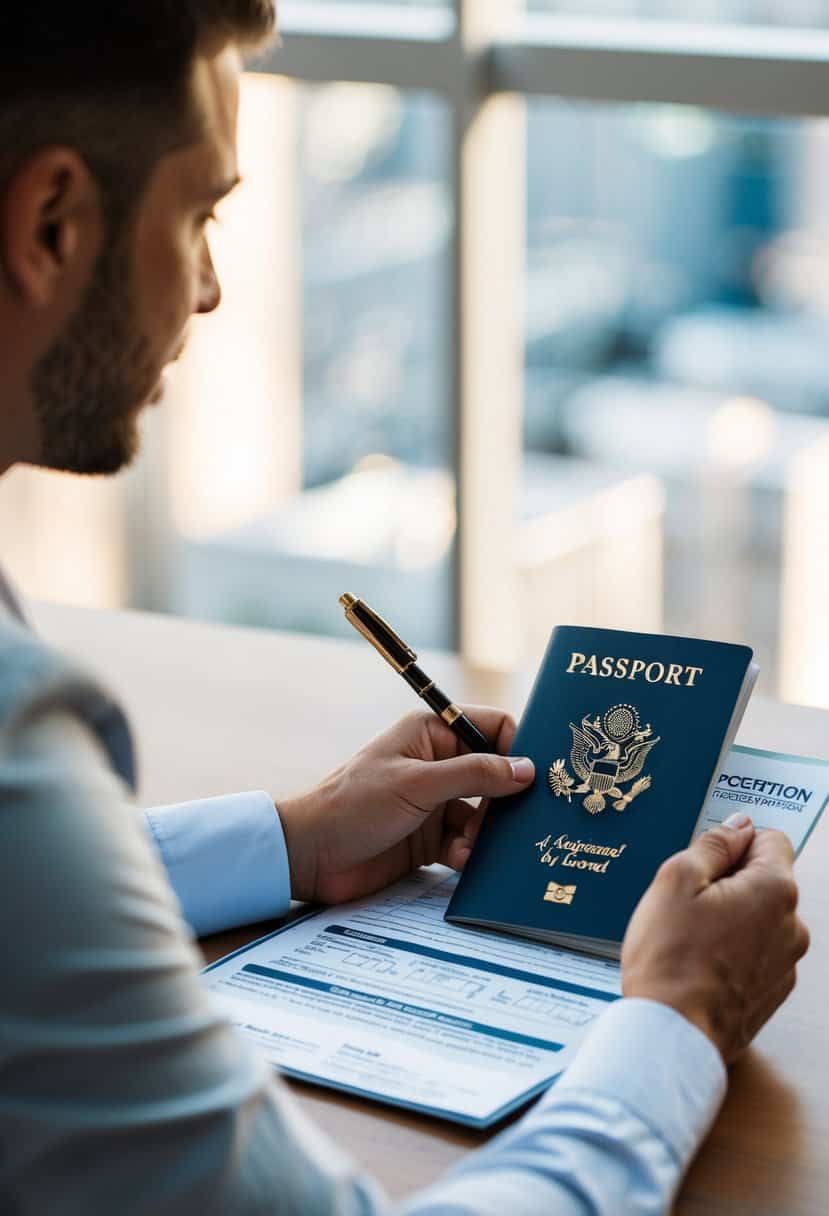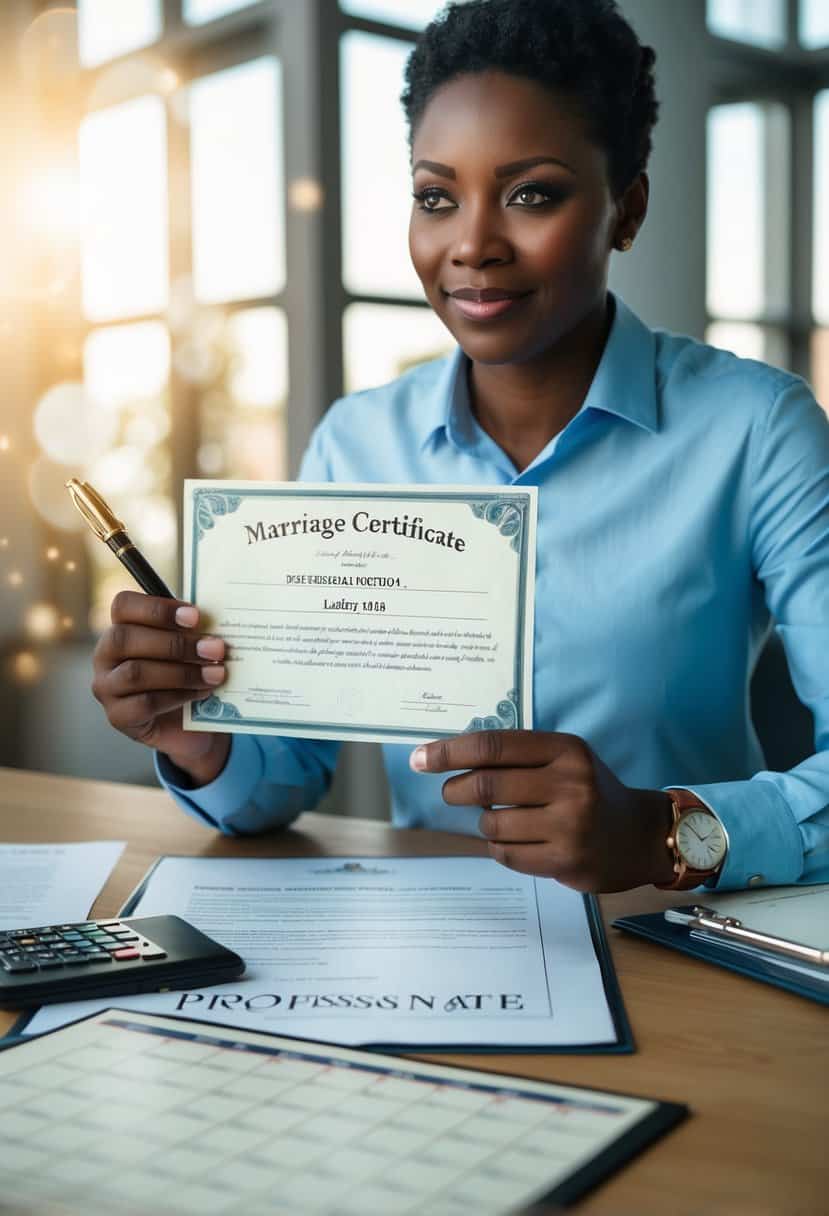Is There a Deadline to Change Name After Marriage in the UK? Find Out Here!
Changing your name after marriage or entering a civil partnership is a significant step. It can hold lots of meaning, from feeling more united with your partner to starting a new chapter in life. If you’re wondering whether there’s a deadline to make this change in the UK, the good news is that there’s no time limit to change your name after marriage in the UK. This means you can take your time to make the decision that feels right for you.

The process can be straightforward, involving your marriage certificate as a primary document needed by many institutions. You’ll need to inform various organizations about your new name, including banks and government bodies.
Some people might choose to change their name soon after marriage, while others might wait until they feel ready. Emotionally, this decision is deeply personal. You may feel excited about your new identity or unsure about leaving your old name behind. Whatever your feelings, don’t rush into it. Give yourself the time and space to decide when and how you want to make this change.
Understanding the Name Change Process

Changing your name after marriage in the UK involves understanding both legal requirements and specific procedures. You’ll rely on various documents, like your marriage certificate, to prove your new name legally.
Legal Foundations for Name Change
The legal basis for changing your name in the UK starts with the marriage certificate or civil partnership certificate. This document is your primary proof of marriage, allowing you to adopt your partner’s surname. Many choose to change their name by deed poll, which is a formal way to provide evidence of your new name to banks and government agencies.
If you decide to adopt a new surname other than your spouse’s, you’ll likely need a deed poll. A deed poll is a legal document that affirms your change of name. This document is not mandatory if you only take your partner’s surname, but it’s essential if altering your name more creatively, such as combining or changing to a completely different name.
Name Change Procedures and Documentation
First, you’ll need your marriage certificate, which you present as proof of your marriage. If you opt for a deed poll, you’ll have to apply through an issuer, which can be accessed online for a fee.
Once you get the deed poll, you must inform places like the bank, passport office, and DVLA. Updating your records usually requires a statutory declaration or similar document, signed and witnessed, to confirm your name change.
This step ensures that all your personal documents align with your new legal name. Always keep copies of your legal documents handy as they are frequently needed.
How to Change Your Name on Official Documents

Changing your name on official documents after marriage in the UK involves several steps. You’ll need to update various government records to reflect your married name, like with HMRC and DVLA. Ensuring you have a certified copy of your marriage certificate is essential for identity checks during these updates.
Changing Your Name with HMRC
To update your name with HMRC, you should inform them as soon as possible after your marriage. You can notify them online by logging into your Personal Tax Account or by writing to them.
Include your National Insurance number and a certified copy of your marriage certificate. Keeping your tax records up to date helps prevent any issues with your tax returns and correspondence.
If you miss updating your details and your records are out of sync, you could face challenges during identity checks or when dealing with tax matters.
Updating Your Name with DVLA
The Driver and Vehicle Licensing Agency (DVLA) requires that you change your name on your driving license promptly.
Fill out the D1 form for a new license if you are a car or motorcycle driver. Motorists must also provide a certified copy of their marriage certificate.
Send these documents to the DVLA address provided on the form. If you have a vehicle registration document, you’ll need to update your records by completing the necessary section and sending it back to DVLA.
Driving without the correct name on your license can lead to fines and other issues.
HM Land Registry Changes
If you own property and wish to update the name on your property deeds, you need to inform HM Land Registry.
Fill out the change of name form and return it with a certified copy of your marriage certificate. This update ensures that your legal documents match your identity.
You won’t usually need to pay a fee for this service. Keeping your property records accurate helps prevent legal complications in the future, especially if you decide to sell or refinance your home.
Child Benefit and Government Records
Updating your name with HMRC should automatically ensure most government records, including Child Benefit, reflect your new name.
If less certain, it’s best to contact Child Benefit directly using their official website to ensure everything is updated. Provide them with your National Insurance number and certified copy of your marriage certificate, if requested.
Regularly checking and updating government records is important to maintain synchronization with your identity, reducing the risk of issues with payments or correspondence.
Changing Your Name with Religious and Civic Authorities

When changing your name after marriage in the UK, there are some specific roles and responsibilities that religious and civic authorities have. These roles are important to ensure your name change is recognized legally and in your religious community. You’ll want to make sure you follow the right steps with each party.
Religious Minister’s Role in Name Change
If you’ve had a religious wedding ceremony, your religious minister can play a part in recording your name change. They might update your name in church records if your denomination keeps such records.
This can be important for spiritual milestones like baptisms or confirmations. It’s a good idea to notify your minister so they can update your contact details in any group memberships or mailing lists.
While not a legal requirement, informing your religious leader ensures all aspects of your life reflect your new name.
Registrar’s Responsibilities and Record Update
After your marriage, the registrar is responsible for ensuring your marriage certificate reflects your new name. The certificate is your primary document for all future name changes with banks or government agencies.
Before the ceremony, make sure the registrar has the correct details about your intended name change. Once the marriage is registered, you can use your marriage certificate to update various legal documents.
Keep this certificate safe, as you’ll need it to amend records like your driver’s license and passport.
Special Cases: Registered Offenders
If you or your spouse are a registered offender, changing your name involves additional steps. You must report the name change to law enforcement authorities, as required by law.
This ensures the relevant databases are up-to-date, which is vital for public safety and legal compliance. Consulting a solicitor might be beneficial to make sure you complete all necessary notifications without missing any steps.
This is crucial to avoid potential legal complications that could arise from not properly updating your records. Be diligent to ensure all aspects of the law are followed with your name change.
Obtaining a New Passport and Travel Considerations

Changing your name after marriage means you’ll need to update your passport. This process involves filling out specific forms, deciding if a post-dated passport suits your needs, and understanding visa requirements for international travel.
Apply for a New Passport
To change your name on your passport in the UK, you’ll need to apply for a new one. Start by filling out the application form and gathering your marriage certificate.
Make sure you provide two identical passport photos and your current passport. Pay attention to the fees, as they vary depending on the type of service you choose—such as standard or express.
You can apply by sending these documents to HM Passport Office. It can take a few weeks to process. Planning ahead will help minimize disruptions to travel plans or other activities requiring identification.
Post-Dated Passports Explained
If you’re planning your wedding and honeymoon close together, consider a post-dated passport. This allows you to apply for a passport in your new name before the marriage takes place.
A post-dated passport becomes valid after the marriage ceremony. You’ll need to provide evidence of your intent to marry and the scheduled date.
This can be incredibly convenient, as it removes the need to apply for a passport change immediately after your wedding. However, be aware that using this type of passport for travel might have specific conditions based on its relationship to the marriage date.
Visas and International Travel After Name Change
A name change after marriage may impact your travel plans, especially concerning visas. If you already have visas in your maiden name, you’ll need to check if they’re still valid or need updating.
Some countries might require a visa to match the name on your passport, while others may allow you to travel with your marriage certificate as proof of your name change.
It’s crucial to consult the specific visa requirements for your destinations to avoid any issues. This preparation can ensure a smooth journey abroad without unexpected complications.
Reflecting Your New Name in Personal and Social Spheres

Changing your name after marriage can be a big step. It not only involves legal documents but also affects your personal and social life. Here are some tips on how to reflect your new name in these areas.
1. Personal Documents
Start by updating your personal documents. This includes things like your bank accounts, utility bills, and membership cards. If these still show your maiden name, consider getting them changed to reflect your new identity.
2. Social Media
Moving on to the online world, it’s time to update your social media profiles. This helps your friends and family recognize your new name. It can be as simple as changing your display name on platforms like Facebook or Instagram.
3. Emotional Considerations
Reflecting a name change can feel emotional. Some people experience a sense of loss or adjustment when leaving behind their maiden name. It’s important to give yourself time to adapt and embrace your new identity.
Incorporating your new name in social settings can take time. Introduce yourself with your new name, and consider small gestures like changing your email signature or sending out an update to close friends.
Remember, it’s your choice how quickly or slowly you want to make these changes. Whether you opt for immediate updates or take it slow, these steps can ease the transition into your new name.


